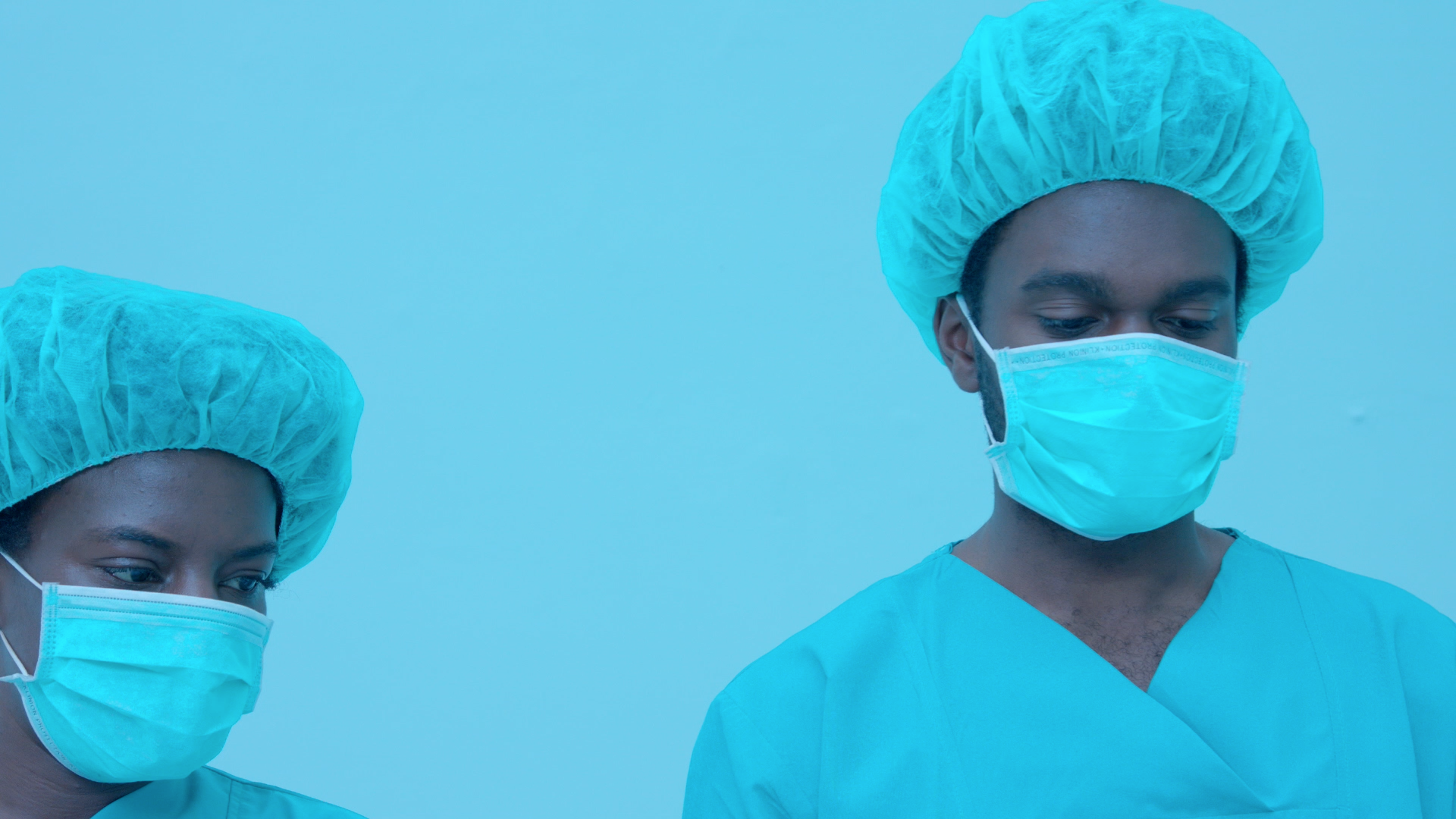The Restless Dread Of Some(thing) Evil
2019
17m43s
In the film The Restless Dread Of Something Evil we enter a dystopian world where all humans decide to have a body part removed, believing that such amputations will help them live longer. Most choose to remove their tongues so they no longer waste energy by speaking. The fewer words one uses, the longer one lives. Death becomes a consequence of using energy, of exerting force.
At a facility that specializes in these procedures, a young woman appears who wants to remove her heart. The expressionless faces of the other patients, together with the soft, sterile pastel interiors, form a sharp contrast to the quiet restlessness of the protagonist.
Still holding on to the old belief that the heart is the seat of emotion, she hopes to reach a state of complete rational calm. In her short twenty-four years, she must have felt the lowest depths of despair—enough to want to remove the very organ that allows us to experience the highest peaks of joy.
Love, pride, happiness, disappointment, jealousy, heartbreak—the last of which can even lead to death. We often hear stories of lifelong partners who die soon after one another. It is understandable that some would prefer reason over emotion, but what remains of the body once it is separated from its soul? The film lays bare the philosophical tension between mind and body, between monism and the ideas of Descartes, in a one-sided, haunting dialogue.


